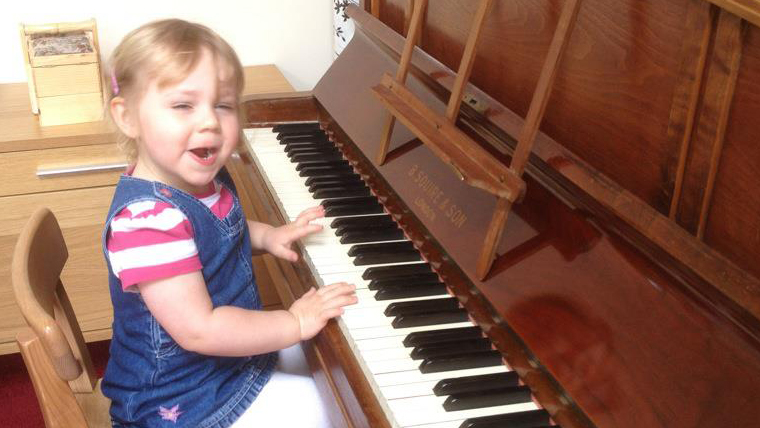Mothers Are Strong And Resilient: Reflecting On Tackling Early Childhood Deaths
Celebrating her daughter's fifth birthday, Sarah Morgan took time to pause and reflect on just how vast the differences between their quiet, suburban life and the lives of children around the world that she works to change with World Vision. All children should survive to five, but not enough of them do.

By Sarah Morgan, Senior Nutrition and Child Health Advisor, World Vision UK
10:30pm in Suburbia and I am lying in bed surrounded by balloon models as my husband practices for our daughter’s fifth birthday party. We have taken the decision not to hire an expensive children's entertainer but to do it ourselves. It’s a decision we may yet live to regret if the completely untested games I have dreamt up fall flat on their faces and the balloon models all resemble worms.
These trifling suburban concerns surrounding a birthday party have made me reflect on my day job: Senior Nutrition and Child Health Adviser for World Vision UK. I spend my days working to ensure children across low income countries survive to the age of five - survive to get that chance to have a fifth birthday party.
This year around the world, six million mothers and fathers will lose a child before their fifth birthday. Around 40% of these deaths occur in the first 28 days of life.
Yet many of these deaths, especially across Africa and Asia where my work focuses, are preventable with simple, cost effective measures such as breastfeeding, hand-washing and timely access to basic medical treatments such as antibiotics.
Experiencing motherhood firsthand
Becoming a mother myself has brought a different perspective on my work. Recommendations such as ‘exclusively breastfeed for six months’ (a lack of which is thought to contribute to over 10% of global child deaths) take on a whole new dimension. I now know what it’s like when you have been up every two hours every night for six months, battling social pressures and barriers to meet that recommendation.
Being a mother has also brought challenges to continue in my work, not least arranging childcare and conforming to suburban norms. Chatting with other mums at the playground, I wonder if I am seen as a strange and cruel mother who abandons her small children to jet off to the African sunshine. More importantly I fear that perhaps I am, as I actually don’t mind leaving my children!
However, the emotional impact of working with families and communities who lose their children now weighs more heavily on me as I leave my own children safe and healthy at home.
I think back to measles outbreaks I witnessed in my twenties with children dying in droves in remote African hospitals, and I have no idea how I made it through a day on the wards. But I don’t think it was coping - it was that I did not understand the complete and overwhelming love that you have for your own child, and the devastation you feel if anything threatens them.
That love and devastation is no less acutely felt in places where a child dying is commonplace. I don’t recall crying in my twenties, but now that I am a mother I cry every time I remember the anguished faces of those mothers losing children to a completely preventable disease. I can imagine how I would feel.
Inspiring strength
But it is not all heartbreaking work, or else I could not go on. What I have seen and learnt over the years is that mothers are strong and resilient. When we give them the tools and knowledge that they need, families can overcome many of the underlying reasons why children die.
Earlier this year I had one of my most positive experiences when visiting World Vision’s programmes in Sierra Leone. There I met community volunteers who were visiting expectant and new mothers and supporting them to tackle the horror of child death. Volunteers help mothers attend antenatal care, deliver their babies in a health facility and care for their babies when they go home.
In Sierra Leone, I also met mother support groups who have come together to improve the availability of good food for their children by growing vegetables in community gardens. In the health centres staff had been trained and equipped with low tech resuscitation devices to help newborn babies breathe – a major cause of newborn death. Everywhere I went, everyone from community members to Ministry of Health staff were reporting reductions in the deaths of children and their mothers.
Whilst I feel completely deflated as I read the latest research, at the same time I know progress can be made. The numbers predicts that only 27 developing countries are expected to achieve international targets to reduce child death by the deadline next year.
Many countries in Africa will still have high numbers of children under the age of five dying for the coming decades. Thanks to the work I am doing and World Vision is doing, however, I know that families can be given the knowledge and support that they need to give them every chance of celebrating their child’s fifth birthday.
More importantly, I know that mothers will not stop working together until preventable child deaths are consigned to history – international targets and negative predictions or not.